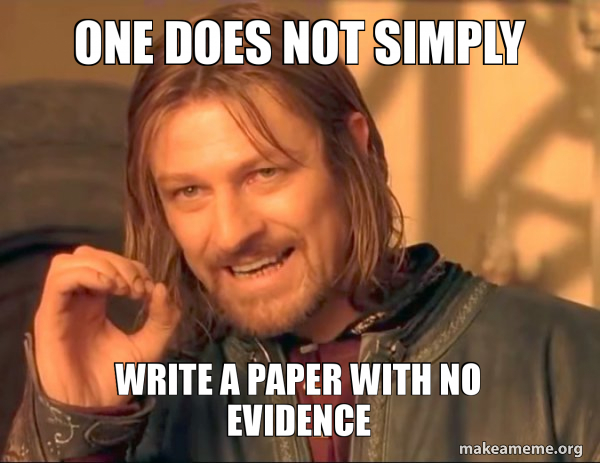Written by Lia Schuermann
When we use the word “argument,” it usually has two very different meanings. The version of arguing you’re probably most familiar with is when someone verbally confronts others and their beliefs and values while defending their own. You probably think of this kind of argument when two friends have a disagreement with each other, which can be highly stressful for them and anyone nearby.
Instead of making an argument, they’re having one, and it’s usually more about confrontation than persuasion (Fleming 249). Everyday arguing is a natural way that people express themselves, but this kind of conflict can be threatening because the focus is often on attacking others and defending ourselves.

In an academic context, we craft an argument in which we not only assert our opinions but present reasons to support them. When we argue in academic papers, we’re not trying to rationalize our own beliefs or defeat our opponents. We’re trying to reason with others. And so, academic arguing is an important and necessary skill and activity because it asks us to use reason to facilitate, manage, and even resolve differences.
What’s in an Argument?
To best craft an academic argument paper for class, you’ll want to prepare. That means before going into in-depth research, make sure you choose a topic or issue with which you can connect. At the same time, make sure it’s a viable topic – one with ample amounts of research that you can make use of in a paper.
If you can’t think of a topic, pick one that deals with being a college student – anything from student loans to parking! You can research the topic online (and/or use your school’s library database, not to mention your local public library) to find articles that not only discuss that issue but do so fairly by acknowledging and respecting those on both sides of the argument, just like academic arguing.
Writing an effective argumentative paper is about being aware of what others think on a topic, reflecting on the opposing views of that topic, and presenting reasons why those involved might compromise on the issue. We can even use academic arguing like this outside of class, but it’s probably not necessary when arguing over whether to have burgers or pizza for dinner. It can, however, be useful when discussing issues with others (friends, family, etc.) who are personally and passionately involved in those issues so that they feel respected and acknowledged.
Perhaps most importantly, in order to craft an effective argument, you must conduct some kind of research and use what you find as evidence to convince those who are reading that you’re not simply stating an opinion (like in a mundane argument with a friend).

For TWU Students
A specific database under the TWU library that reflects this is Opposing Viewpoints Resource Center, which is organized by issue and contains articles on one side of the issue and articles on the other side of the same issue.
For Writers at Large
Another really helpful resource that shows different sides of an issue is New York Times’ “Room for Debate” where they discuss current events and issues with writers debating multiple sides of that issue. What’s really cool about this is that there’s not necessarily just two sides to each issue, as debaters aren’t categorized by labels like for and against.
I hope these resources are as helpful for you as they have been for me as a college student. And remember, academic arguing is about respecting and discussing, not fighting!
References
Fleming, David. “Rhetoric and Argumentation.” A Guide to Composition Pedagogies, edited by Gary Tate, Amy Rupiper Taggart, Kurt Schick, and H. Brooke Hessler, Oxford University Press, 2014, p.248-265, works.bepress.com/david-fleming/3/.

